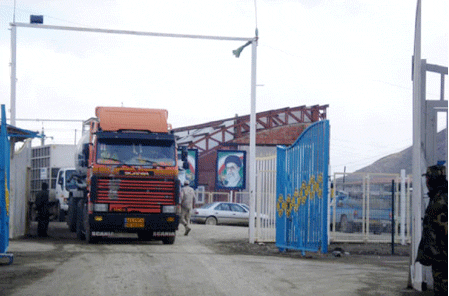The Globe

The Kurdistan Region depends on neighboring countries Iran and Turkey for many of its goods. According to experts, the Kurdistan Regional Government cannot end these trade relationships to pressure either country to end the bombardment of the Region.
The Kurdistan Region depends on neighboring countries Iran and Turkey for many of its goods. According to experts, the Kurdistan Regional Government cannot end these trade relationships to pressure either country to end the bombardment of the Region.
Iran and Turkey are the Region’s main suppliers of goods and trade is around $10 billion dollars a year, and rising. Around 80 percent of goods in Kurdistan Region come from either Turkey or Iran.
Kurdistan Region has around 1,200 foreign companies investing in the Region, and more than half of these are Turkish. The Region also has dozens of Iranian companies.
Economic expert and Deputy Head of the Kurdistan Region Economy Relationships, Faisal Ali, says if the Region broke off trade relations with these two countries, there would be dire consequences because “The only entry point for the Region to import materials would be the central and southern parts of Iraq whose goods are mostly Turkish and Iranian!”
Other than clothes and consumer items, Iranian and Turkish companies build apartments and roads. After 20 years of KRG, the Region still relies almost exclusively on imported goods and raw materials, making it a net importer.
Economic expert Dr. Dler Shawes believes the economy and businesses should be organized under specific theories and principles.
“The absence of such theories and principles means the Region has a weak policy regarding its economy and business. This has also made the Kurdistan Region a net consumer, which depends mainly on Turkey, Iran, Syria, Jordan and Saudi Arabia,” said Shawes.
Most goods come over the border crossings with Iran and Turkey, but some goods come through Erbil and Suleimaniya airports.
“Any consumer country cannot have a strong economic infrastructure. This economic situation caused KRG to have a weak political stance towards neighboring countries as well,” said Ali.
Ali also said it is impossible to close the border crossings, as it would cause hardship on the people of Kurdistan Region. “Prices would go up and people would face huge problems.”
While the Kurdistan Region practices these policies in its economy and and there is negligible local investment, the Region is rich in terms of oil and other natural resources, such as fertile land.
Many of the villages were abandoned when the government started employing many in the public sector. According to Shawes, KRG should implement policies to encourage investment in rural areas and have people move back to the villages.
“If the government had cared about the agricultural and industrial sectors in recent years, the Kurdistan Region would now be able to stop trade relations with one of these two countries and use it as political pressure to stop bombardments,” said Ali.
Some experts believe Iran and Turkey would be hard pressed to find other countries to export their goods to, as Kurdistan provides an excellent and convenient market.
Shawes thinks differently and points out Turkey has also a strong economic relationship with Europe, some eastern countries and Gulf countries. “Although Kurdistan Region is a location for those two countries in terms of business, economy, culture, politics and other aspects, Iran also has strong business ties with Russia, Azerbaijan and some other countries.”
via KurdishGlobe- Iran and Turkey major exporters to Kurdistan.

Leave a Reply